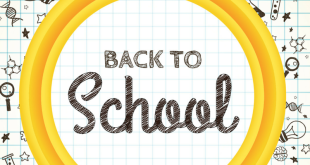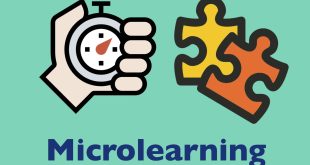motivational strategies for students is the most important element that a teacher must juggle. From lesson planning and test management to assignment correction and parent-teacher meetings, providing each and every student with the best possible education while making progress in the class can seem daunting.
Motivating students is one major key that helps in creating successful classes that run smoothly.
But just how do you motivate students? What motivational strategies for students have been tested and proven to motivate students to work and learn more? And what tips and tricks can you try in your next class to get your students more engaged?
Get started Skolera for FREE
Table of Contents
motivational strategies for students
Passion: Be Enthusiastic
Passion is always attractive, and enthusiasm is contagious in the class. One great motivational strategies for students to get them excited, enthusiastic, and motivated to work and learn is to display the passion and enthusiasm you want to see in them. Rarely will students become interested and intrigued by a topic that a teacher displays little to no interest in either.
Relevance: Know Your Students
Another key to motivating students and igniting their enthusiasm is to know them better. Learn what their future dreams are, the things they love to do, and the topics and hobbies they’re interested in. You will be able to better connect the lesson and the course to their own personal lives, and thereby igniting more interest in the topic.
Freedom: Offer Students Some Control
Sometimes handling the tools of teaching to students helps motivate them to learn. Not only do students grasp the material better when they research it to present it, but it also helps keep them engaged in the topic and provides them with an opportunity to showcase their understanding to you and to their peers.

Self-Learning: Let Students Discover for Themselves
New knowledge and skills are sometimes more ingrained and better remembered when the learner discovers the concepts him/herself. Providing students with problems and having them learn the new topic by ‘discovering’ its concepts through problem-solving can enhance their understanding and confidence, and motivate them to learn and discover more.
Teamwork: Group Activities
Group projects and activities do not only serve to build a sense of cooperation and teamwork in students but the positive peer pressure they provide push students to work and study harder. (Of course, there are cases in which some students join groups as free riders, to avoid doing any work. Set certain guidelines, rules, and rubrics that discourage such behavior.)
Goals: Set them for and with Your Students
Goals set right can motivate students to reach higher and work harder. Set realistic goals for your students, and encourage and guide them to set their own. Create projects, assignments, and activities that push students to try while taking into account their individual and collective levels of understanding and skills.
Constructive Criticism: Focus on Mistakes, Not Individuals
Constructive criticism, done right, does not only motivate a student to correct a mistake, but also to perfect his/her skills and understand better. When offering comments, focus on the mistake itself, and not on the student. And praise students when they show outstanding performance.
Choice: Allow Students to Focus on Their Interests
Choice instills a sense of ownership. When students are provided the opportunity to choose a topic for a research paper or project, for instance, they feel more linked to their work than when a specific topic is assigned to each.
[rad_rapidology_inline optin_id=”optin_2″]
Tips and Tricks for Motivating Students
Sign up for free
Strategies are only really as good as the lesson plans and activities that are used to implement them. So what activities, methods, and assignment ideas can really help put those strategies to practice?
- Outstanding work always deserves to be promoted. Set a designated area on the classroom wall for great work, and contact parents about their children’s impressive progress. Weekly awards and contests also keep students motivated each day.
- Long-term goals need short-term motivations. Help students set short-term goals. Congratulate them and celebrate their success when they achieve those goals.
- Class jobs give students a sense of responsibility and build a stronger relationship between them, their classmates, and the class as a whole. Students can be delegated to do simple tasks such as class attendance, whiteboard wiping, and chair organizing, or they can be assigned more engaging tasks such as working on a class blog, caring for a class pet, or classroom guest relations.
- Interest and hobby surveys in the beginning of the school year can give you ideas ahead of time. Ask students what activities and topics they are fond of and what they do during their free time.
- Ask students to write about what connections can be made between the new lesson and their personal lives. Their answers, especially when written, will emphasize the importance of what they’ve learned and helped keep them motivated.
- Praise effort rather than personal qualities and intelligence. It pushes students, even the smartest of them, to continue to work harder, rather than rely on their intelligence to get by.

Wrap Up
An unmotivated student will not get far, and an unmotivated class will not create the class environment fit for success. Motivating students not only help them pass and succeed but creates a classroom experience that students and teachers will both like.
Displaying the enthusiasm you want to see in
your students, understanding and knowing your students, and providing them with a level of choice and freedom can all go a long way to keeping your students motivated and working hard. Group work can also create a healthy level of competition and build a spirit of teamwork.
And always offer constructive criticism that points out the issues in the mistake itself, and not in the student.
Learning Management Systems, Technology, and Student Motivation
Whether you are trying to build a bond of understanding with your students through communication or to provide tools that help coordinate group project efforts, modern technology has made it all easier.
Learning management systems (LMS) today have gone a long way in enhancing the class experience, both within and outside the classroom, to enhance student motivation and performance.
LMS today allow teachers to communicate with their students, answer their questions, provide constructive feedback, and inform them of important updates and information 24/7. These systems have also provided students with the tools that make group project efforts run smoothly through better communication and file-sharing. Progress tracking and achievement badges on LMS provide an added boost of motivation and students compete with each other and strive for more success.
Skolera is an award-winning LMS that has managed to provide schools with a wide range of tools and features that make teaching easier for teachers, and learning more fun and motivating for students.
Skolera’s student badges, progress charts, and teacher feedback are just some of the tools and features that provide students with the motivation that pushes them to the next level.
Discover all the fun and exciting features Skolera has to offer.
Create Free Account
8 motivational strategies for students Poster
[rad_rapidology_inline optin_id=”optin_2″]
Further Reading:
https://cft.vanderbilt.edu/guides-sub-pages/motivating-students/
http://www.teachhub.com/top-12-ways-motivate-students
https://teach.com/what/teachers-change-lives/teachers-motivate/
https://www.edutopia.org/blog/strategies-helping-students-motivate-themselves-larry-ferlazzo
 Skolera LMS Blog Educational Technology Articles and News
Skolera LMS Blog Educational Technology Articles and News




